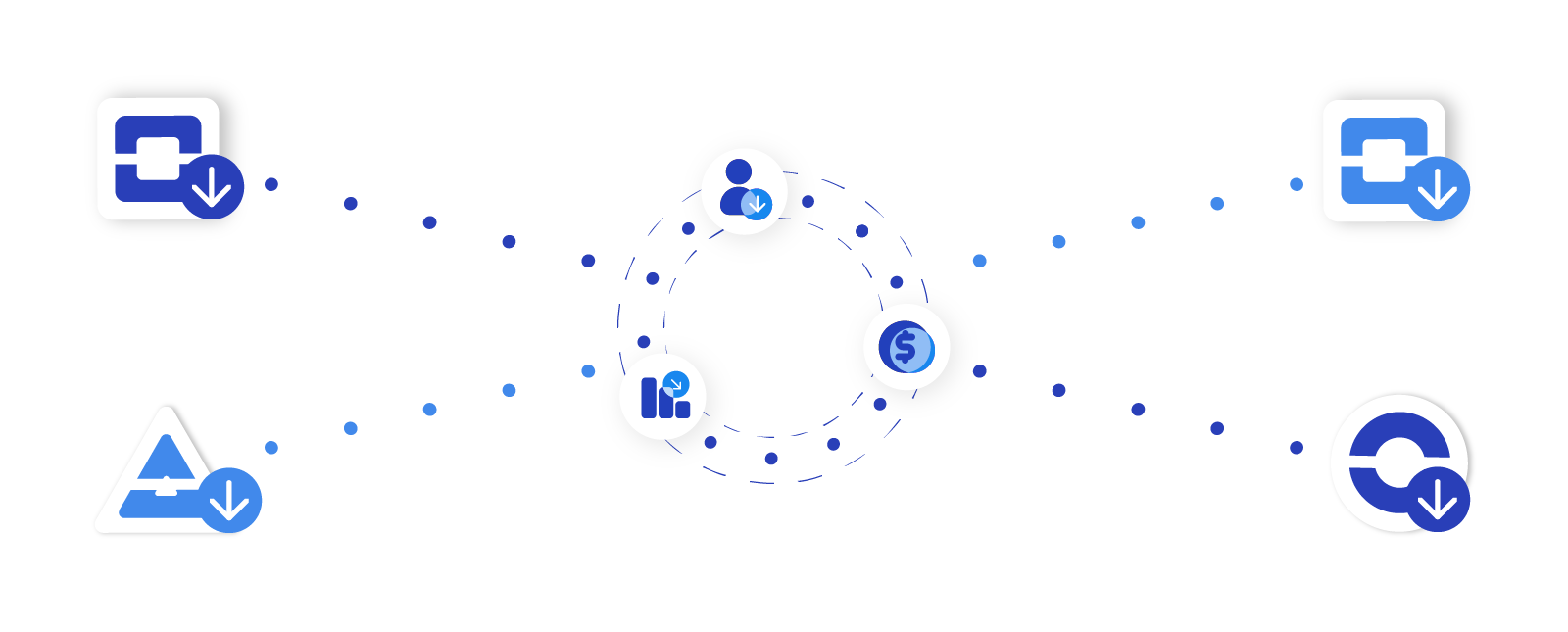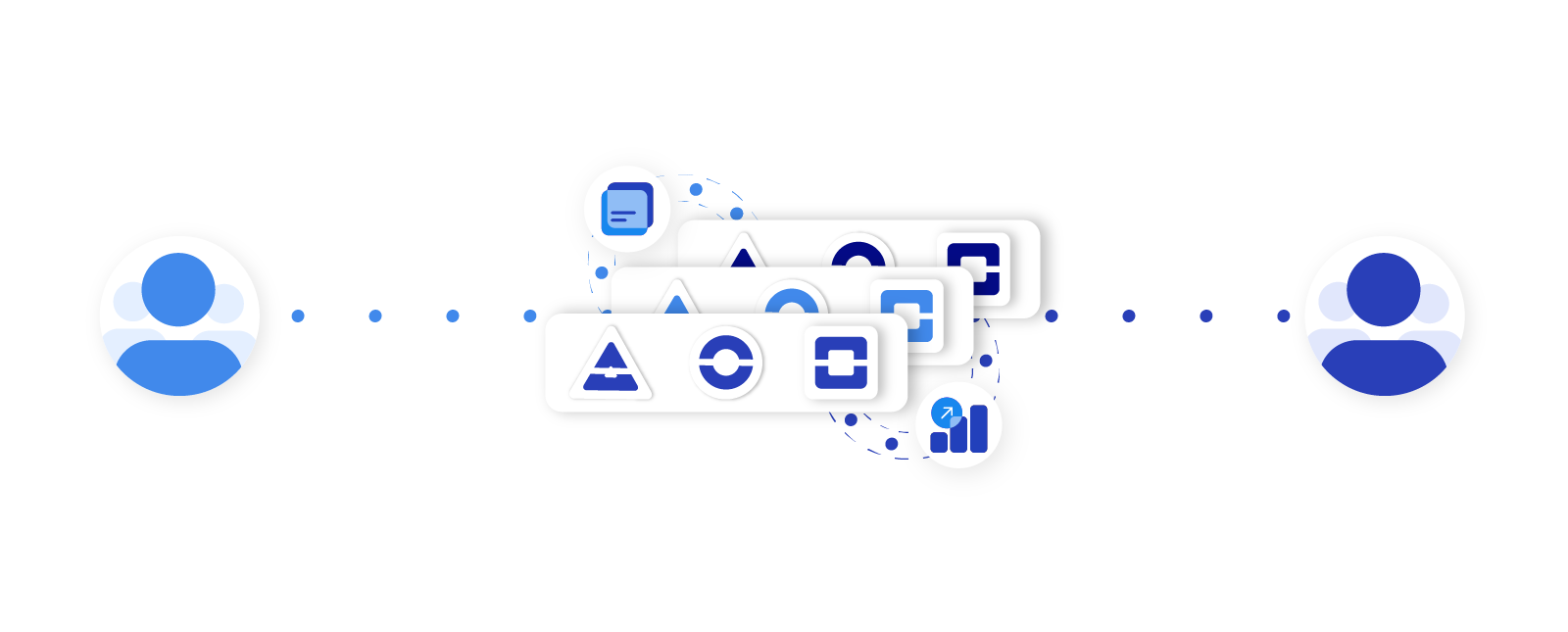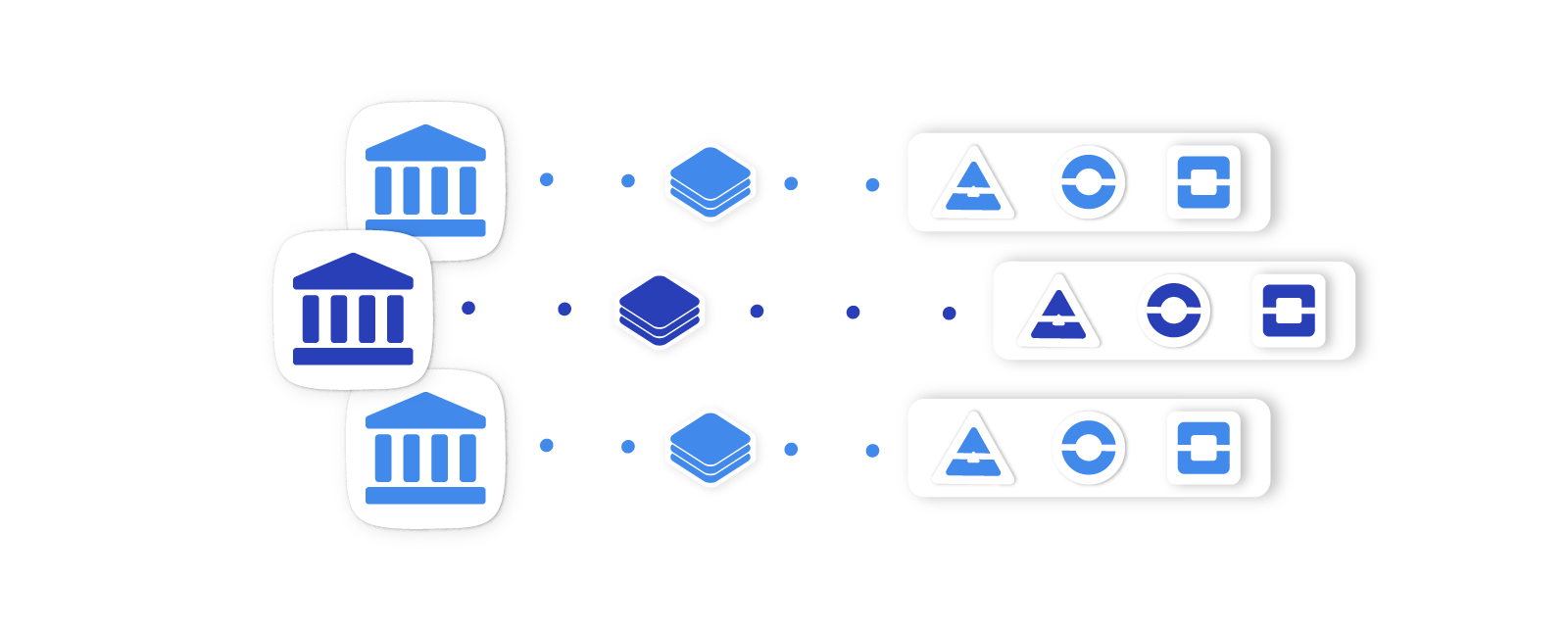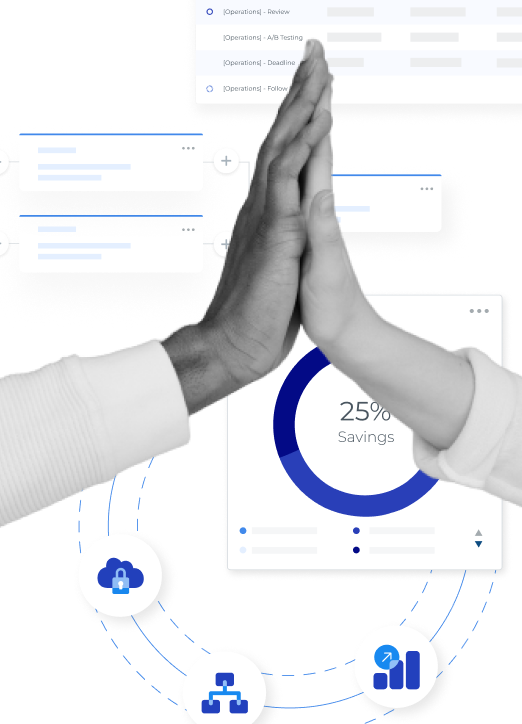Nowadays, businesses are grappling with the challenges and opportunities presented by the ever-growing volumes of data. The need for expert guidance to navigate this complex landscape has given rise to a thriving data consulting industry. But how do organizations decide whether engaging a data consultant is right for them?
This article will delve into the pros and cons of data consulting, explore the different types of data consultants, and examine the scenarios in which a data consultant may be the perfect fit and when alternative solutions might be more appropriate.
By understanding the various aspects of data consulting, you’ll be better equipped to make informed decisions that support your organization’s data-driven goals and drive long-term success.
The Most Common Catalysts for Data Consulting
Data consulting is a complex process that requires a thorough understanding of the various data-related challenges organizations face. It involves identifying, analyzing, and resolving these challenges so businesses can operate smoothly and efficiently. Several catalysts often drive the need for data consulting services.
One of the most common is poor data quality. Inaccurate or incomplete data can significantly affect businesses, including low customer satisfaction, decreased productivity, and higher costs. Data consulting firms can help organizations identify the root causes of poor data quality and develop strategies to improve it.
Another catalyst for data consulting is implementing new data management technologies. As businesses grow and evolve, they may require new tools or platforms to manage their data effectively. Data consulting firms can help organizations select and implement the most suitable solutions based on their needs and goals.
Data security is also a critical catalyst for data consulting. With the increasing prevalence of cyber threats and data breaches, organizations must ensure their data is secure and protected from unauthorized access. Data consulting firms can help businesses identify system vulnerabilities and develop robust security protocols to mitigate risks.
In addition to these catalysts, data consulting can help organizations optimize their data analytics capabilities. With the explosion of big data, businesses need to extract insights and make informed decisions based on their data. Data consulting firms can help companies set up data analytics frameworks and tools to analyze and visualize their data effectively.
Overall, data consulting is essential for organizations that want to stay ahead of the curve in today’s data-driven business landscape. By leveraging the expertise of data consulting firms, businesses can address critical data-related challenges and unlock the full potential of their data.
Common Data Consultant Areas of Focus & Expertise
Data consultants possess the technical know-how and expertise to help organizations harness the power of data. Their range of skills allows them to tackle various data-related obstacles and help businesses make informed decisions.
One of the primary areas of focus for data consultants is data analysis. They have an in-depth understanding of various data analysis tools and techniques to turn complex data sets into meaningful insights. Armed with these data-driven insights, organizations can make informed decisions in real-time, improving their overall performance and competitiveness.
Data consultants also play a crucial role in optimizing data governance policies. They help organizations develop data governance strategies that comply with regulatory requirements, reduce risks, and maximize the benefits of data. This is particularly important given the constantly changing data privacy landscape.
Another area of expertise for data consultants is data architecture. They are trained to create efficient, scalable, and robust data architectures that integrate with various systems and enable seamless data flows across the organization so that they can leverage their data infrastructure to its full potential.
Data consultants also possess high-level analytical skills that allow them to uncover hidden patterns and correlations in data. This, in turn, enables organizations to identify new insights that can drive innovation and find opportunities to optimize operations and reduce costs.
In addition to their technical expertise, data consultants are skilled communicators who can effectively convey the meaning behind complex data. They are also adept at helping organizations develop metrics and key performance indicators that can measure the success of their data-driven initiatives and identify areas for improvement.
Overall, data consultants play a vital role in helping organizations leverage the true potential of their data. They are critical for optimizing data-related processes, making informed decisions, and staying competitive.
When Is It Best to Hire a Data Consultant?
Unlocking the full potential of your organization’s data can be challenging. The sheer volume of data available to businesses today makes getting lost in the sea of information easy. But there’s a solution—hiring a data consultant can be the key to unlocking the value of your data and maximizing your organization’s potential.
Whether you are just starting and need help setting up a data infrastructure or you are a well-established company looking to optimize your existing data systems, a data consultant can help. They bring a wealth of experience and knowledge to the table and can help you identify areas of improvement you may have overlooked.
A data consultant can be particularly helpful when your organization struggles to make sense of the data it collects. They can help you identify patterns and trends in your data and provide insights to help you make better-informed decisions. This is especially useful for businesses looking to expand into new markets or launch new products.
Another situation where a data consultant can be beneficial is when you’re experiencing data quality issues. Data quality is crucial for making accurate decisions, and a data consultant can help you identify and address any issues affecting your data’s quality, from data cleaning and validation to the implementation of data governance policies and procedures.
A data consultant can also be valuable if your organization operates in a highly regulated industry. They can ensure your data management practices are compliant with industry regulations and best practices to avoid costly fines and legal issues down the line.
In addition to helping, you overcome data-related challenges, a data consultant can also help identify new opportunities for growth and innovation. By analyzing your data and identifying patterns and trends, they can help you uncover new markets, products, and services.
Hiring a data consultant is no longer a luxury today, but a necessity. They can help you overcome data-related challenges, maximize the value of your data, and identify new opportunities for growth and innovation.
Data Consultant Pros & Cons
Data consultants are the new superstars of the business world—and for good reason. They offer several benefits to organizations looking to stay ahead of the game. But before diving headfirst into a partnership with a data consultant, you must weigh the pros and cons.
First and foremost, data consultants bring a wealth of knowledge and expertise to the table and help organizations make data-driven decisions that will positively impact the bottom line. They can identify areas for growth and improvement and provide actionable insights that lead to increased efficiency and profitability.
However, there are also some drawbacks to consider. For one, hiring a data consultant can be expensive, particularly for small businesses with limited budgets. The costs can be even higher if the consultant recommends expensive legacy software solutions, sometimes costing six to seven figures per year. Additionally, data consultants may not always align with your organization’s culture and values, leading to conflicts and a lack of buy-in from your team.
Another potential drawback is the amount of time it takes to onboard a data consultant. They need to familiarize themselves with your organization’s data infrastructure, data policies, and data sources, which can be a lengthy process that takes time away from your team’s day-to-day operations.
Despite these potential drawbacks, the benefits of partnering with a data consultant far outweigh the risks. By hiring a data consultant, organizations can gain a competitive edge in their industry and stay ahead of the curve in data analysis and decision-making. Plus, with the right consultant, organizations can expect to see a significant return on investment over time.
When hiring a data consultant, look for someone with experience in your industry who understands the unique challenges and opportunities that come with it. A good data consultant should also have a track record of success and be able to provide references from previous clients.
What Are Common Data Consultant Alternatives?
Organizations seeking alternatives to hiring a data consultant have several options to address their data-related challenges. These alternatives can provide cost-effective and flexible solutions for managing data needs internally without the expense of hiring external consultants.
One alternative is investing in staff training and development to build in-house data expertise. Equipping team members with the necessary skills and knowledge allows organizations to manage data projects and initiatives without external assistance. This approach also fosters a culture of data-driven decision-making and retains valuable institutional knowledge.
Another option is leveraging online resources, such as courses, webinars, and forums, where organizations can access expert advice and best practices for managing data. Communities like Stack Overflow, GitHub, and Data Science Central offer valuable insights and support from experienced professionals.
Collaborating with academic or research institutions is also an effective alternative as these partnerships provide access to cutting-edge research, resources, and expertise. It can lead to innovative solutions to data-related challenges and support long-term growth.
Additionally, organizations can explore software solutions, such as self-service business intelligence (BI) tools, data integration platforms, and data quality tools, to manage their data needs more effectively. These empower teams to handle data-related tasks independently while benefiting from the guidance of industry-leading tools and technologies.
Ultimately, the most suitable alternative to hiring a data consultant depends on an organization’s needs, goals, and resources. By carefully considering the available options and investing in internal capabilities, organizations can address their data challenges without relying on external consultants.
What to Do If Data Consultants Don’t Seem Like a Good Fit
If data consultants don’t suit your organization, exploring software solutions is an excellent alternative. These solutions offer scalability and built-in infrastructure and address many data-related challenges that would typically require the expertise of a data consultant.
Software solutions provide numerous benefits that make them a viable alternative to hiring data consultants. One significant advantage is their ability to scale with your organization’s needs. As your data requirements grow, they can adapt accordingly without requiring additional external expertise. This scalability ensures your organization meets its data needs efficiently and cost-effectively.
Another advantage of software solutions is their built-in infrastructure. Many modern data platforms, such as cloud-based solutions like Amazon Web Services, Google Cloud Platform, and Microsoft Azure, provide robust, secure, and scalable data storage and processing capabilities. With these platforms, organizations can avoid extensive in-house infrastructure development and maintenance, which would typically require a data consultant’s expertise.
Furthermore, organizations can use self-service BI tools, such as Microsoft Power BI, Tableau, and Qlik Sense to empower employees to access, analyze, and visualize data without specialized technical skills. This reduces dependency on data consultants while fostering a culture of data-driven decision-making within the organization.
Data integration platforms and data quality tools are other software solutions that can help organizations independently manage complex data-related tasks. They streamline data consolidation and improve data quality, ensuring that the data used for analysis is accurate and reliable.
By adopting scalable built-in infrastructure and leveraging the capabilities of software solutions, organizations can address their data-related challenges without relying on the expertise of external data consultants. This allows for more control over data management processes and encourages the development of in-house data expertise, fostering a data-driven culture that supports long-term success.
Is a Data Consultant What’s Best for Your Business?
Determining if a data consultant is the best option for your business depends on various factors, such as your organization’s specific needs, resources, and data management capabilities. Assessing your in-house expertise and the scope and complexity of your data projects is essential.
If your team lacks the necessary skills or faces complex data challenges, a data consultant can provide valuable guidance and support. Additionally, consider your organization’s budget and resources as hiring a data consultant can be expensive. In some cases, investing in staff training or software solutions to build in-house expertise might be more cost-effective.
Time constraints and compliance requirements are also crucial factors to consider. Data consultants can accelerate project timelines and improve efficiency, which can be invaluable if you need to meet deadlines.
They can also ensure compliance with data privacy regulations and mitigate potential risks. Reflecting on your organization’s long-term data strategy as a data consultant can help develop data-driven strategies and provide insights that support your business goals.
Finally, consider the cultural fit between the consultant and your organization as it makes it easier to implement their recommendations effectively.
By carefully evaluating these factors, you can determine if a data consultant is the best choice for your business. If a data consultant is not the right fit, consider alternatives such as software solutions or investing in staff training to address your organization’s data-related challenges and support its long-term success.
Final Thoughts About Data Consulting
The decision to engage a data consultant is significant as it can have lasting implications for your organization’s success. By weighing the pros and cons of data consulting and understanding the various types of data consultants, you can make an informed choice about whether this expertise fits your business.
Remember that your organization’s specific needs, resources, and goals are crucial factors in determining the suitability of a data consultant. For some, a data consultant may be the ideal solution, while others might find more value in alternative approaches, such as software solutions or developing in-house expertise.
Our powerful software solutions at Kizen are an excellent alternative to hiring a data consultant. We can help you streamline your data management processes and unlock valuable insights to grow your business faster.
Simply connect with us on our website so that we can schedule a time to chat.
Frequently Asked Data Consulting Questions
Let’s explore some of the most commonly asked questions about data consulting.
What do data consultants do?
Data consultants specialize in helping organizations manage, analyze, and leverage their data to make informed decisions and achieve business goals. They provide expertise in areas such as data strategy, data management, data governance, data quality, data integration, analytics, and data visualization.
They assist businesses in optimizing their data infrastructure, implementing best practices, and developing data-driven solutions that drive growth and improve operational efficiency. They often work closely with stakeholders across various departments to ensure the effective use of data throughout the organization.
What does a data science consultant do, and how does it differ from other data consultants?
A data science consultant is a specialized professional who uses advanced analytical techniques, such as machine learning, predictive modeling, and statistical analysis, to extract insights and knowledge from data. Their primary goal is to help organizations make data-driven decisions by developing models, algorithms, and tools that uncover patterns and trends in the data.
While other data consultants may concentrate on aspects like data management, governance, and integration, a data science consultant specifically addresses complex analytical challenges and provides expertise in areas such as artificial intelligence, big data, and advanced analytics. This distinction allows data science consultants to deliver tailored solutions that harness the power of data to drive innovation and inform strategic decision-making.
What’s the difference between a data analyst and a data consultant?
The primary difference between a data analyst and a data consultant lies in their roles and responsibilities.
A data analyst focuses on collecting, processing, and analyzing data to generate insights and reports that support decision-making within an organization. Their role typically involves using statistical methods, data visualization techniques, and reporting tools.
In contrast, a data consultant is an external expert who advises organizations on various data-related aspects, such as data strategy, management, governance, integration, and analytics. They help organizations optimize their data infrastructure, implement best practices, and develop data-driven solutions to address specific business challenges.
While both roles involve working with data, a data consultant provides a broader range of services and expertise beyond data analysis.
How much do data consultants charge?
Data consultants’ fees vary widely depending on their level of expertise, the project’s scope and complexity, the consultant’s location, and the engagement’s duration. For individual consultants, hourly rates range from $50 to over $200 per hour, while established consulting firms may charge higher rates.
Some consultants may also offer fixed-price or project-based fees, which range from a few thousand to several hundred thousand dollars, depending on the project’s size and complexity. Organizations must carefully evaluate their budget, project requirements, and the value a data consultant can bring to their business before deciding.
Why are special consultants needed for “big data” consulting projects?
Big data consulting projects need special consultants because handling large-scale, complex datasets requires a unique set of skills and expertise that go beyond traditional data management practices.
Big data consultants possess deep knowledge of big data technologies, such as Hadoop, Spark, and NoSQL databases, and expertise in distributed computing, data storage, and processing. They help organizations design and implement scalable, efficient, and secure big data solutions capable of handling massive volumes of structured and unstructured data.
Additionally, they often have experience with advanced analytics and machine learning techniques, enabling them to derive valuable insights from large datasets, which can drive informed decision-making and strategic growth.













